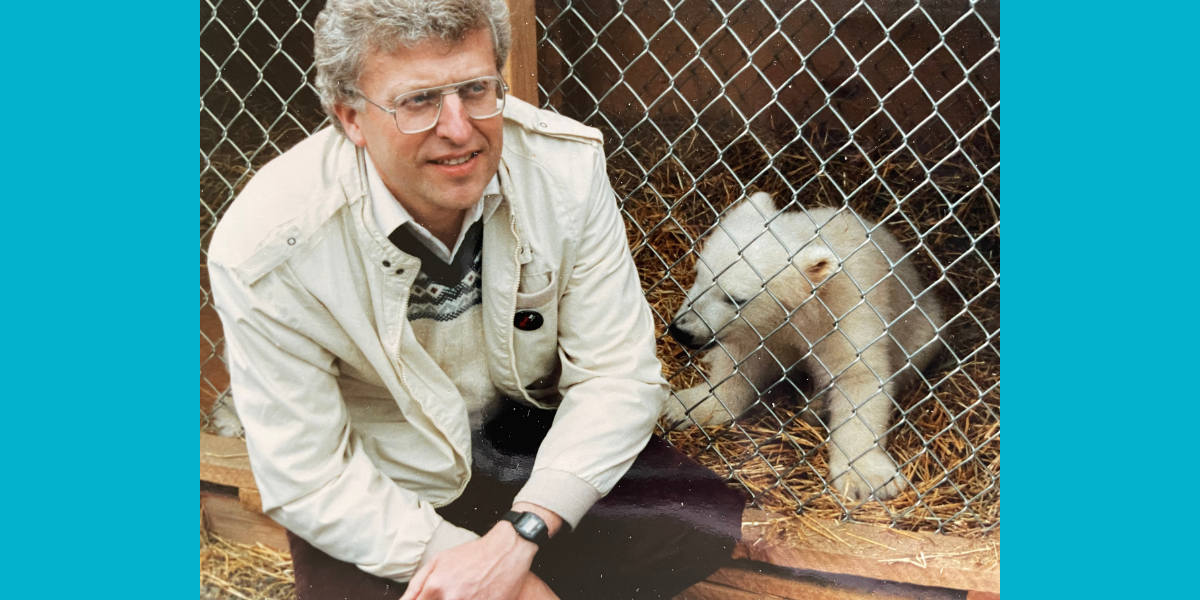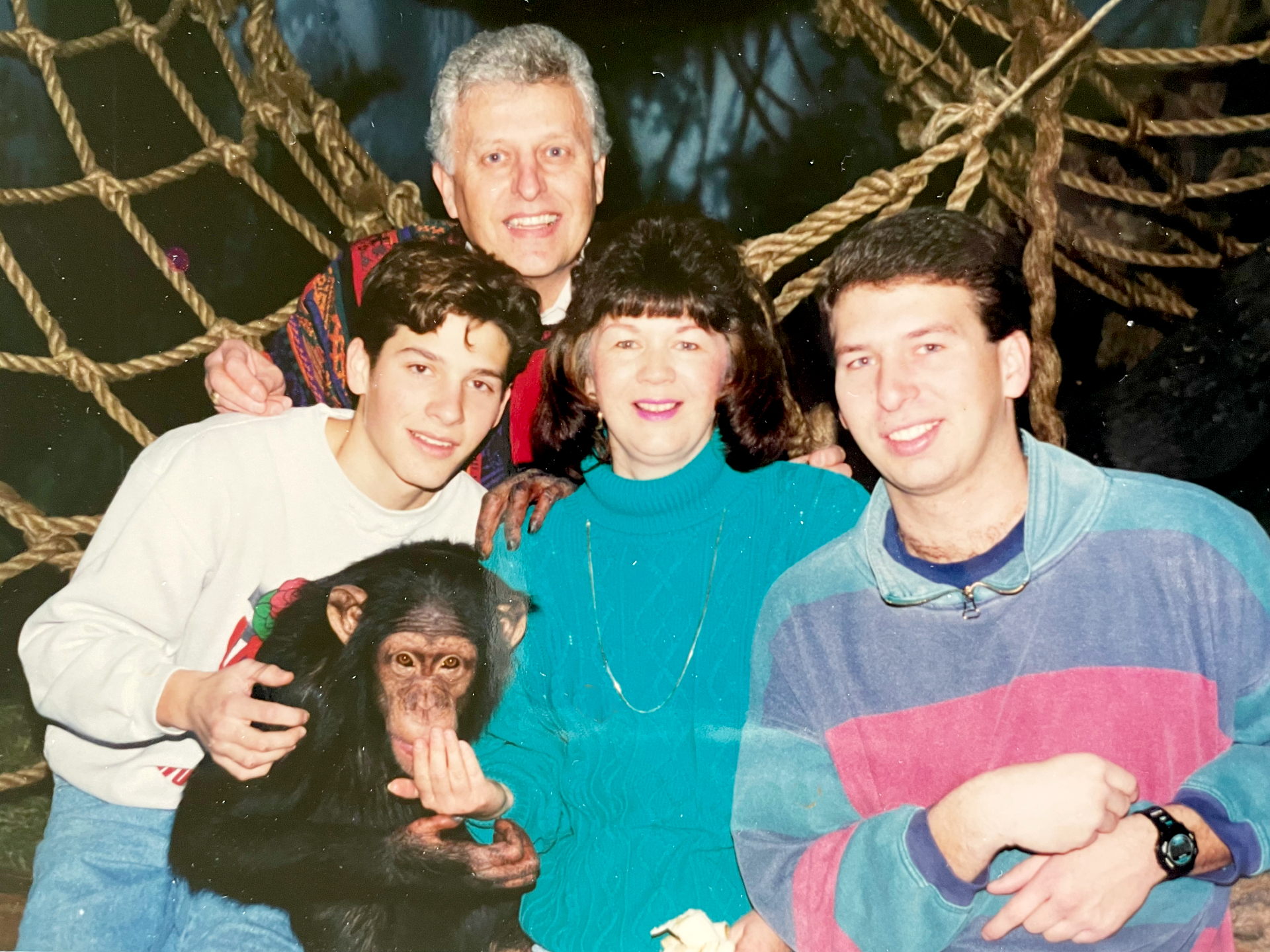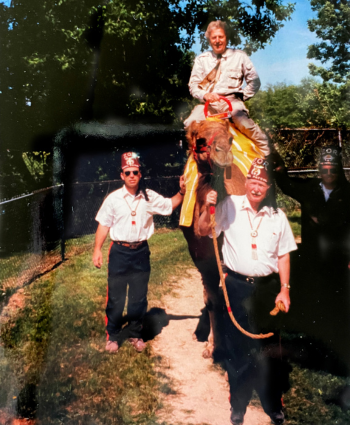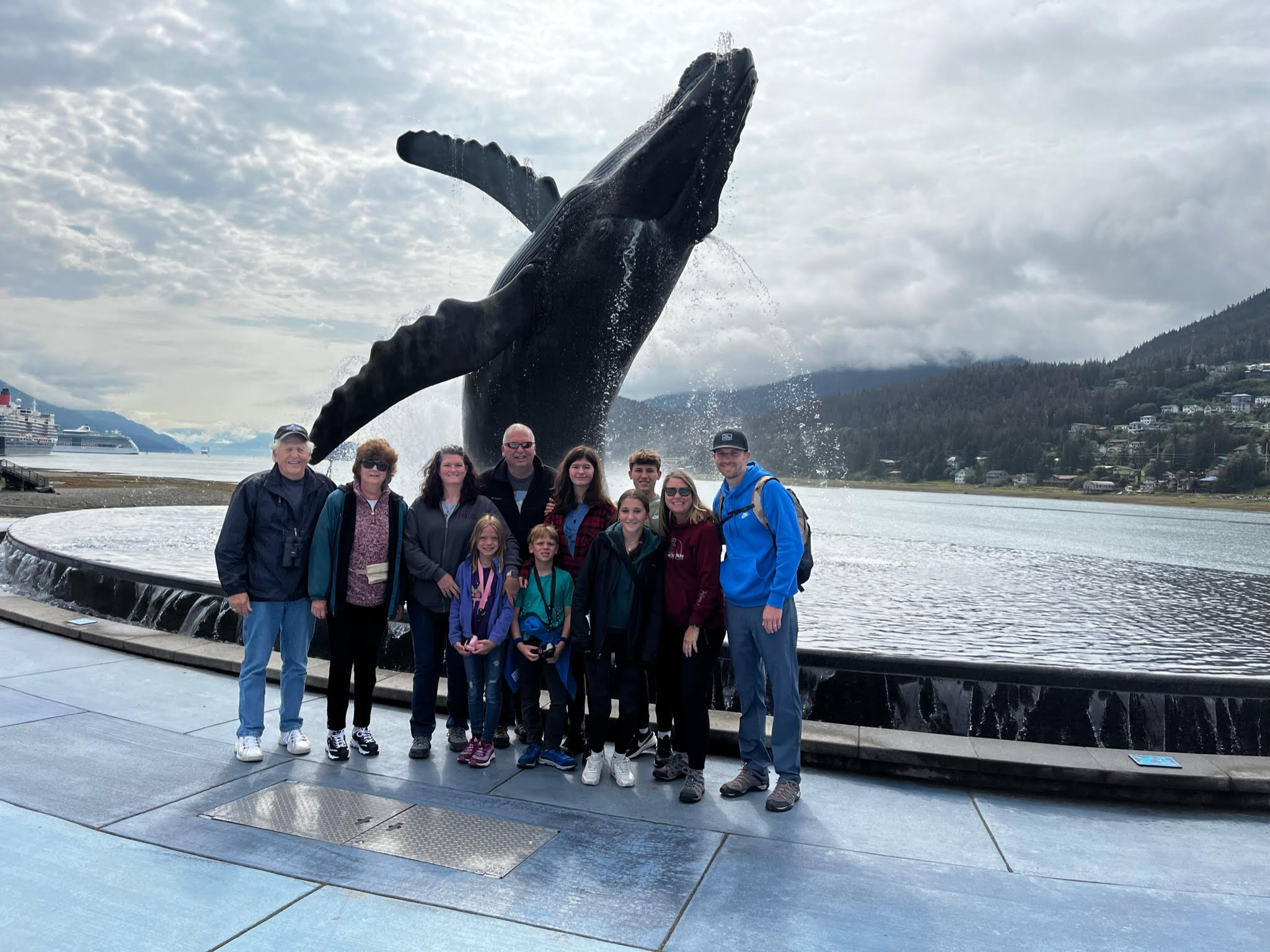Managing a menagerie
Dr. David Hall, ’76 DVM, reflects on career, including pivot from practicing vet to zoo director

Dr. David Hall, ’76 DVM, reflects on career, including pivot from practicing vet to zoo director
Dr. David Hall, ’76 DVM, sits with a polar bear cub at the Henry Vilas Zoo.
Dr. David Hall’s veterinary career started like most. After graduating from the College of Veterinary Medicine, he went into private practice, becoming a full partner and owner of Oregon Veterinary Clinic, located about eight miles south of Madison, Wis.
The clinic’s proximity to the Henry Vilas Zoo provided Hall, ’76 DVM, with an opportunity that would change his career trajectory. A year into Hall’s job at the clinic, the zoo became a client and he stepped into the role of serving as its primary veterinarian. At the time, the zoo was home to 700 animals, a menagerie spanning from elephants, rhinos, lions, tigers, bears, giraffes, zebras, orangutans, and chimpanzees to flamingos, capybaras, tortoises, and snakes.
“The elective courses on exotic animals I took while in college became very valuable,” Hall says.
The position became the foundation for a career move that allowed Hall to have an even greater impact on the zoo. In 1986, he was recruited and selected after a nationwide search to lead the Henry Vilas Zoo as its director. In this role, he helped improve both the living conditions for the zoo animals and their quality of life as well as the visitor experience for the Dane County community.
Facets of the then-74-year-old zoo needed renovation by the time Hall took the helm. He initiated a $12 million improvement program for the zoo known as “Rezoovenation” and under his leadership built new exhibits for primates, big cats, reptiles, and birds. The improvements created more natural, behavioral-enriched exhibits for the animals.

Hall also initiated changes that enhanced the experiences of the zoo’s nearly 1 million annual visitors, including the creation of an education department and classes at the zoo, a new Discovery Center to house those educational efforts, and a new visitors center. These efforts required coordinating with the Henry Vilas Zoological Society for fundraising, city and county governments, and the zoo commission.

Community outreach became a key part of Hall’s job as director. He was invited to give lectures at the University of Wisconsin College of Veterinary Medicine on zoo animal medicine and at the UW Steven’s Point campus on zoo husbandry careers.
Zoo animals were often partners in Hall’s community outreach and education efforts.
“I enjoyed bringing baby zoo animals to the University Children’s Hospital to provide a ray of happiness to terminally ill children,” he says. “I also enjoyed giving presentations with live animals to all the civic organizations in Dane County to promote the zoo and all its renovations.”
After leading the zoo for 15 years, Hall retired in 2000. He remains a dedicated visitor and promotes the zoo with his grandkids and friends.
In the 23 years since his retirement, Hall and his wife, Sandy, have kept busy with traveling around the world, including leading educational trips centered around ecology and zoos in locations across Africa, Australia, South America, Southeast Asia, and Central America.

Reflecting on his career and the life he built around it, Hall is proud of his accomplishments but knows he is not alone when it comes to improving the world for animals and people alike.
“I’m even prouder of what my classmates and I have accomplished for animal health and welfare,” Hall says. “I’m optimistic for the future of our great veterinary profession.”